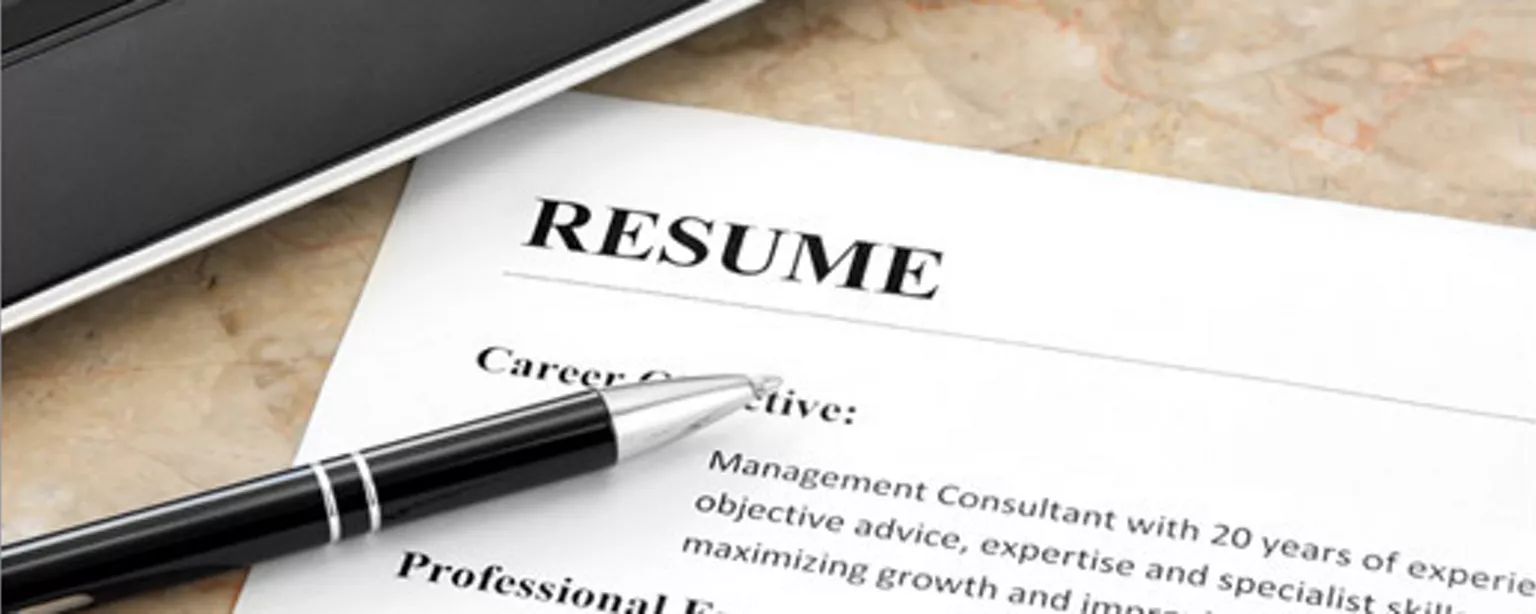You’ve set your sights on landing a new job, perused the different accounting and finance roles, and found a position that could be your perfect fit. Now it’s time to whip your professional persona into shape, which means you could use some resume writing tips.
The fact that this crucial page — two pages, at the most — can make or break your chances of being called for a job interview is hardly a secret. Senior managers in a Robert Half survey said they typically receive 40 resumes for every open position, and they spend 12 minutes per resume looking for candidates to interview.
But what are the odds of pushing your resume to the top of the hiring manager’s pile instead of the shredder? Pretty good, if you follow the advice of Clint Ahlgrimm, who coaches candidates on resumes and is a division director at Robert Half Finance & Accounting.
Here are seven of his resume writing tips to help you make sure your future employer realizes you’re the one for the job.
1. Skip the summary format
“A lot of people hire resume writers and come back with the ‘summary resume,’ which is the wrong format for financial and accounting job seekers,” Ahlgrimm says. “Every hiring manager I’ve talked to would rather see a reverse-chronological format.”
So put your newest and most relevant position first, and go backward from there. Just don’t go back too far. Unless you have a compelling reason to list work experience that goes back to the ’90s, limit your resume to the last 10 years. You can bring up anything older than that in the interview.
2. Match the employer’s keywords
Many companies filter their incoming resumes through a computer program to weed out candidates who aren’t a good match based on keywords. That filter means your resume may not ever make it to the hands of a hiring manager. Study the job description and look for keywords and action verbs such as “diagnose,” “financial compliance” and “sales forecasting.” Use these keywords wherever applicable in your resume. The more your keywords align, the greater your chance of rising to the top of the stack.
3. Keep your tone professional
No clip art or pictures, Ahlgrimm says, and save anything quirky for the cover letter. He remembers seeing a resume from a candidate who had a gap in employment and explained it this way: “CEO of a household of 4.”
“I get it," he says. "She was a stay-at-home mom. But the resume is not really the place for that, not for an accounting role, anyway.”
4. Be as specific as possible
This resume tip applies to a variety of items you’ll list, so here are some specific suggestions.
- Use years and months for your employment dates. Rather than write, “I worked there from 2015-17,” you should use the years and the months, such as, “from December 2015 to April 2017.” That way it doesn’t look like you are hiding breaks in your work history.
- Provide more than the company name. When you list where you’ve worked, include what type of company it is, whether it is a nonprofit organization, public accounting firm, manufacturing company, and so on. Also note how large it is, either in terms of revenue, or with the number of employees.
- Spell out your skills and certifications. Certifications, of course, are among the best ways to demonstrate dedication to your specialty. You might have one of the most popular finance certifications — CPA or CMA (Certified Management Accountants) or Certified Internal Auditor (CIA) — or a specialty credential, such as the Energy Risk Professional (ERP). Either way, make sure all the acronyms have a place in your resume. If you’re working on a continuing education course, that, too, could be listed in the education section of your resume.
- Give the nitty-gritty on your software and systems know-how. For each company you worked for, what software did you use to do your job? Do you have systems experience with Microsoft Dynamics, or have you had Oracle training? The more Excel you know, the better, Alhgrimm says. “I’ve seen people get jobs because they were so good at Excel. Hiring managers love seeing that you can build a macro to automate tasks or that you work on pivot tables, lookup and reference functions, or IF statements (a function that checks whether a condition is met).”
- Go into detail with your job duties. Have you reconciled accounts? How many accounts you have reconciled? What types of accounts were they — bank accounts, general ledger accounts, balance sheets? If you were a manager, how many employees did you oversee? Did you work in payroll? What kind of payroll and in what states? You get the idea.
5. Showcase your key achievements
In addition to detailing your job duties, especially the ones where you went above and beyond, be sure to highlight your accomplishments and promotions. Try writing miniature case studies that include specific results.
For example, writing that you “inspected accounting systems” is fine, but take the description a step further and offer a statistic that shows how you helped your firm increase its efficiency or played a part in reducing costs. Did you assist with a software implementation, or were you responsible for a new procedure? How much time and money did you save the company?
Including results will demonstrate to your potential employer that you’re a problem solver who is aware of the importance of your role in an organization.
6. Catch your grammer grammar errors
Typos, misused words and careless spelling on your resume bring only trouble to your job search. Grammatical mistakes in your resume make you look sloppy and negligent. Don’t rely on spell and grammar checkers; they might not catch extra or missing words, subject-verb disagreement, inconsistent tenses, wrong punctuation choice, or words like “where” when you meant “were.” To make sure you catch all the errors, print your resume and read it out loud. Then have a language-savvy friend or family member proofread it.
For more resume mistakes, see 7 Resume Mistakes That Could Cost You Your Dream Job.
7. Include your less-obvious soft skills
Employers are increasingly looking for evidence of soft skills in resumes of job seekers. For example, including your public speaking skills tells a potential employer you’re capable of presenting your ideas and reports to clients. Business acumen is another important soft skill. Also, it’s not unusual these days for "social media savvy" to show up on an accountant job description, so when you see that, incorporate your skills with Facebook, LinkedIn, Twitter and any other applicable tools.
As your career evolves, you’ll find yourself constantly revisiting and revising your resume. Remember to give it a quick once-over for every new job to which you apply and keep up to speed on industry demands for finance and accounting professionals.
Ready to show us your new and improved resume? Send us your resume.






